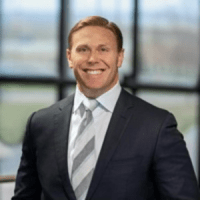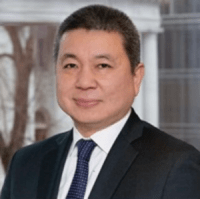Five Healthcare Administrators Changing the World
MHA Search
For the latest academic year, we have 170 schools in our MHAOnline.com database and those that advertise with us are labeled “sponsor”. When you click on a sponsoring school or program, or fill out a form to request information from a sponsoring school, we may earn a commission. View our advertising disclosure for more details.
Healthcare administrators coordinate the delivery of health services. But underneath that mandate is a massive scope of work. Healthcare administration has become a broad, multidisciplinary field that is as complex as the population it serves. Managing the delivery of health services requires a knowledge of business strategy, organizational leadership, scientific research, broader advocacy, and public policy. Also, new developments and innovations in healthcare technology are allowing these professionals to serve patients better and deliver cutting-edge care.
Healthcare administrators can manage hospitals, collaborate with universities, design medical department strategy, lead health-related businesses, and influence public policy; the very best of them may do all of these, and more, over the course of their career. Top healthcare administrators today are reinventing the industry from the inside out and changing the world in the process. Their work ranges across all the key trends of American public health: mental health, telehealth, AI, rural health, and access to care. The five healthcare administrators profiled below are a few of the country’s top leaders in the field.
Methodology
In selecting top health administrators, MHAOnline.com considered all of the following criteria:
- Trendsetting Leadership: Each leader is directly engaged in advancing a major force shaping healthcare today, such as mental health, telehealth, AI, rural health, or access to care.
- System-Level Authority: These individuals hold executive or administrative roles that confer major decision-making power, allowing them to influence policy, allocate resources, and scale care models that truly change the world.
- Progressive Action: Reflecting active leadership and measurable progress rather than legacy accomplishments, this list prioritizes leaders who have overseen significant initiatives within the past five years.
- Operational Acumen: Vision is one thing, execution another, and the leaders on this list put the former into action with the latter: managing budgets, programs, and partnerships in ways that translate strategy into real-world change.
Five Healthcare Administrators Changing the World

Jennifer Schulz
Mental illness affects an estimated more than one in five American adults each year, equivalent to over 60 million people. Demand for behavioral health services continues to outpace supply, while employers and health plans increasingly rely on external partners. As CEO of Lyra Health, Jennifer Schulz leads one of the largest employer-focused mental health care platforms, operating at the intersection of access, administration, and outcomes.
At Lyra, Schulz oversees a model that blends a national network of providers with technology-enabled care coordination. The company’s approach is designed to make a system long marked by fragmentation and inconsistent quality easier to use and more efficient. Under Schulz’s leadership, Lyra has expanded its focus on measurement-based care, workforce support for clinicians, and cautious use of automation—framing technology as an administrative tool to improve access and coordination rather than as a substitute for care.
Schulz’s role places her squarely within the administrative challenges reshaping healthcare today: balancing rising demand, limited workforce capacity, payer expectations, and quality oversight in a high-need domain. Her leadership illustrates how healthcare administrators are redefining access to care, particularly in areas where traditional delivery models have struggled to keep pace.

Owen Tripp
For many patients, the challenge of healthcare is getting to the right care at the right time. Locating appropriate providers, coordinating referrals, and understanding how insurance coverage applies is a significant pain point: a 2023 KFF survey found 26 percent of insured adults couldn’t get an appointment with an in-network doctor they needed, and 14 percent said a doctor or hospital they needed wasn’t covered.
Owen Tripp is the co-founder and CEO of Included Health, an integrated virtual care and navigation company with the simple administrative thesis that better outcomes often begin with better access, better guidance, and fewer barriers between patients and appropriate care. The company works with over 300 employers, health plans, and public-sector partners, combining clinician-led navigation and virtual care into a single experience that helps members use their benefits effectively.
More recently, Tripp has pushed Included Health deeper into “AI with clinical oversight,” launching an AI personal health assistant: Dot. The emphasis is on precision and safe handoffs, rather than generic chatbot guidance. Dot draws on benefits and claims context, and escalates urgent risks, including suicidality, to human clinicians.
Included Health was named on Fast Company’s Most Innovative Companies list in 2024, and Tripp was listed as an honoree on Slice of Healthcare’s 2025 “Top Digital Health Leaders” awards list.

Kyle Zebley
According to FAIR Health, 14.9 percent of commercially insured patients had at least one telehealth claim in January 2025, compared to 0.15 percent in May 2019. That 5,680 percent increase in usage illustrates telehealth’s central role in post-pandemic healthcare delivery. But this is still new territory, and telehealth’s future depends on policy decisions related to Medicare coverage, interstate licensure, equitable access, and standards of care. As CEO of the American Telemedicine Association (ATA), Kyle Zebley operates at the center of those decisions.
Zebley assumed the role of CEO in December 2025 after serving for several years as ATA’s senior vice president of public policy and executive director of ATA Action, the organization’s advocacy arm. In those roles, he became one of the most visible policy strategists in telehealth, working directly with lawmakers, federal agencies, and industry stakeholders to extend and formalize telehealth flexibilities introduced during the COVID-19 pandemic. His work has focused on reimbursement parity, licensure reform, and safeguarding access for rural, underserved, and behavioral health patients.
With a background in health policy rather than entrepreneurship, Zebley is well-suited to lead telehealth’s next phase: the transition of virtual care from a place of novel technological innovation to one of trusted and reliable infrastructure.

Bill Gassen
Based on 2020 Census data, HRSA’s Federal Office of Rural Health Policy (FORHP) considers 19.3 percent of the population (64.5 million people) to be rural. Servicing that constituency with healthcare—what’s known as rural health—is constrained by thin margins, workforce shortages, and an aging population. As president and CEO of Sanford Health, the nation’s largest rural health system, Bill Gassen is shaping what the future of rural health looks like at scale.
Gassen has served as Sanford Health’s president and CEO since November 2020, after a decade in senior leadership roles inside the organization, including chief administrative officer and chief human resources officer. Under his leadership, Sanford has leveraged AI, virtual care, and clinical innovation to help transform how rural care is delivered. And, in January 2025, Sanford completed its merger with Marshfield Clinic Health System, expanding its reach in Wisconsin and Michigan’s Upper Peninsula and explicitly framing the deal as a way to “transform care delivery in rural Midwest” through a combined nonprofit integrated system: today, it operates approximately 56 hospitals and over 270 clinics, employing around 56,000 people and serving over 425,000 members of its two fully-integrated health plans.
Modern Healthcare named Gassen as one of its 100 Most Influential People in Healthcare for 2025, and the American Hospital Association (AHA) selected him as chair-elect designate, with plans for him to become AHA chair in 2027.

Kyu Rhee, MD
Community health centers (CHCs) serve more than 31 million patients each year, including a disproportionate share of low-income, rural, and medically underserved populations. They’re the primary care backbone of thousands of communities nationwide. As president and CEO of the National Association of Community Health Centers (NACHC), Dr. Kyu Rhee is charged with defending this critical safety-net infrastructure from the second-order effects of short term federal funding extensions and continued Medicaid policy uncertainty.
A central feature of Dr. Rhee’s leadership has been elevating community health centers within national policy conversations. He has overseen intensified advocacy around federal grant funding, Medicaid stability, workforce development, and the integration of behavioral health and primary care—areas that directly affect the ability of health centers to operate at scale. At the same time, he has emphasized modernization efforts in data capacity, care coordination, and value-based payment readiness to ensure health centers remain sustainable as healthcare delivery models evolve.
By shaping how more than a thousand health center organizations are financed, staffed, and supported, Dr. Rhee’s work illustrates how healthcare administration can influence access to care for millions—particularly in communities where alternatives are limited or nonexistent—and change the world in the process.

